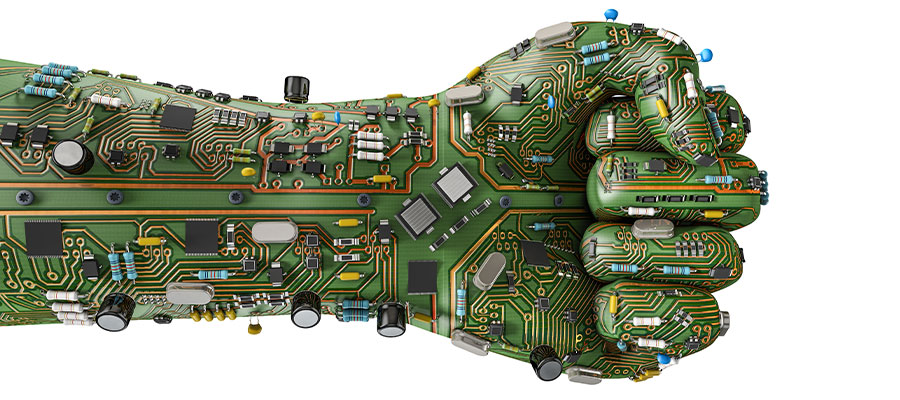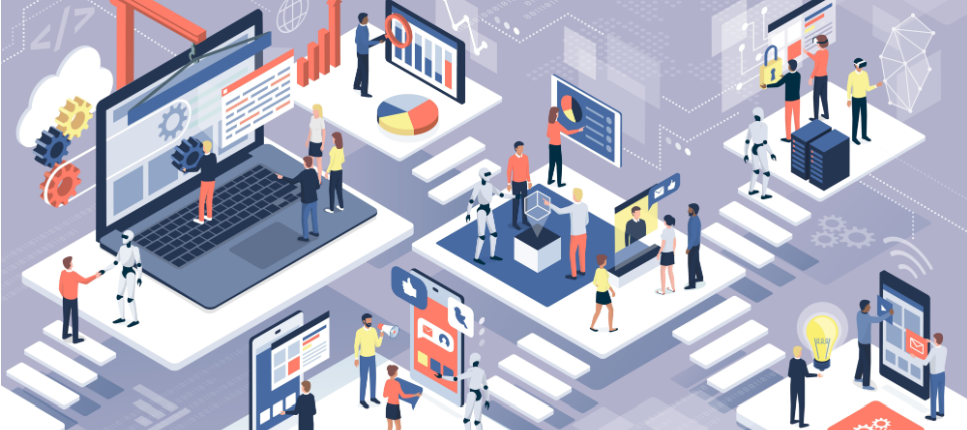What does revolutionary mean anyway? Let’s start with two examples that are absolutely related to one another, although separated by a few centuries.
In the year 1439, Johannes Gutenberg invented the press. While the invention itself is technological, the revolution that ensued went much beyond. In 15th-16 century Europe, printing automatization begun changing the way people interacted, starting the era of mass communication, and altering even the way education itself was provided. Before the advent of print, all books were manuscripts: they were handwritten, and in many cases, without spaces between words, which made them difficult to read (andyoucanunderstandwhy).
 Hence books were physical encapsulations of religious, mathematical and geographical knowledge. They were exceedingly rare, possessed only by scholars and the elite. Accordingly, the knowledge they contained was available to very limited realms of middle age society.
Hence books were physical encapsulations of religious, mathematical and geographical knowledge. They were exceedingly rare, possessed only by scholars and the elite. Accordingly, the knowledge they contained was available to very limited realms of middle age society.
Printing however made books more affordable, available in much greater quantities for dissemination, and broke the readability barrier by replacing manuscript with type (you are reading type now, as I can barely read my manuscript).
Fast forward to the early 1990’s, the World Wide Web is beginning to take hold on the Internet growing exploded from an estimated 50 websites worldwide in January 1993 to more than a billion in April 2016. Today the Web is considered ubiquitous, and the world knowledge available to any search engine is without measure. The Information Age has replaced the Industrial Age in human history, and there is no lack of examples on how this has transformed society (and still is). It has brought us knowledge-based economies, the Google Effect, Big data, Internet addiction disorder, cyberwarfare, social networking and much more.
These are just two examples of revolutionary innovations that profoundly transformed and impacted society.
Jumping to the learning revolution
Access to learning became possible for the masses through print, but does digital learning have the same potential to affect learning and society? The impact is actually major, and I suggest three points to start with.
Firstly, any topic is readily accessible to your computer or tablet, mostly for free. If you are a high-school or college student wanting to brush up on algebra, Khan Academy is a fantastic resource. Or you could access any of thousands of massive open online courses (MOOCs) now made available through various providers such as edX, Coursera, iTunesU, FutureLearn or OpenClassRooms. Topics are extremely varied, from astronomy to business & administration or health & society. If you want to learn how to make French Baguette at home like I did, turn to YouTube (mine is respectable even though I am not a baker by trade). In short, from STEM to programming, from marketing to new languages, learning has never been more accessible.
Secondly, the consumption of learning has never been so flexible. Consider these three situations: a university student with a part-time job, doing an online class from home on a Sunday morning, a professional grabbing a 20-minute sales capsule on the company Learning Management System in the train commute on her mobile phone, and a retired senior participating in a Sustainable Development MOOC. You get to decide how much you learn, when and where.
It’s all about learning ability
Finally, employers are looking for more than diplomas and GPAs when they hire. In 2013, Google’s Senior Vice President of People Operations, Laszlo Bock, stated during an interview in the New York Time that “G.P.A.’s are worthless as a criterion for hiring, and test scores are worthless. … We found that they don’t predict anything.” In a later article, the NY Times also recalled what Google values strongly in new hires: “the No. 1 thing we look for is general cognitive ability, and it’s not I.Q. It’s learning ability. It’s the ability to process on the fly. It’s the ability to pull together disparate bits of information”.
In the context of a fast moving company in a changing industry, there is tremendous value in a workforce that can learn, adapt and evolve with the business needs. More generally in a knowledge-based economy, I believe that more and more employers will adopt a similar approach to hiring. And that loops back directly to self-learning. While in the past employees mostly learned on-the-job while acquiring experience, today the expectation is changing towards a workforce that actively demonstrates a capability and interest in self-learning and continuous development.
Nowimaginetryingtoselfdevelopwithouteasyaccesstoknowledge!
Author:
Guillaume Perron
Chief Commercial Officer @KnowledgeOne. Evangelist. Nerd dad. Dark chocolate benefactor. Physical limits stretcher.







Leave A Comment